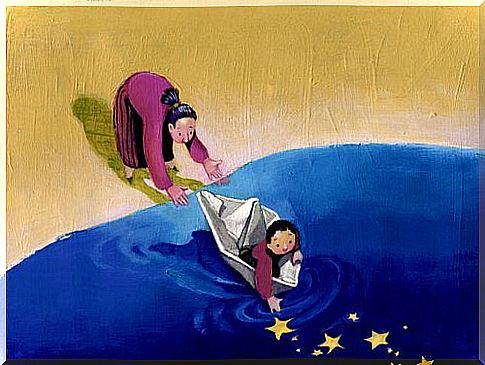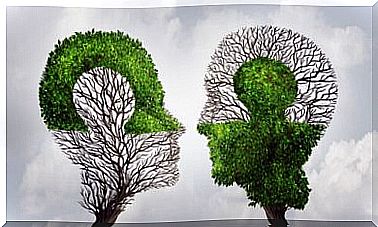Loved Children Become Adults Who Know How To Love

Our first experiences with the world mark the beginning of our emotional development. In childhood, a web is woven that will connect our mind and body, which will largely determine the development of the capacity to feel and love.
In this sense, our emotional growth will depend on our first emotional exchanges, which will teach us what to see and what not to see in the emotional and social world in which we find ourselves.
Thus, the field of our childhood allows us to sow love in a natural way, which will determine that the capacity to love and to be loved grows in a healthy way and helps us to develop in the future.

If we feed children with love, fears will starve
The displays of affection and affection raise children’s self-esteem and help them build an emotionally adapted and intelligent personality. That is, our love helps them deal with the natural fears that arise at different ages, fostering a healthy degree of sensitivity.
Children have a natural confidence in themselves. In fact, it surprises us that faced with insurmountable disadvantages and repeated failures they don’t give up. Persistence, optimism, self-motivation and enthusiasm are innate qualities of children.
Realizing this helps us to be aware of how important it is to love our children and educate them about respect, empathy, expressing and understanding feelings, controlling impatience, adaptability, kindness and independence.

What can we do to raise happy and healthy children?
A child’s temperament reflects a system of specific innate emotional circuits in the brain, a schema of its present and future emotional expression, and its behavior. These may or may not be appropriate, so education must become a support and a guide for them.
To achieve optimal emotional health, we must change the way children’s brains develop. The idea is that through love and emotional education we stimulate certain healthy neuronal connections.
For example, when a child is shy by nature, the adults around him overly protect him, causing him to become anxious over time.
Emotional education requires a certain amount of adult “unlearning”. A shy child must learn to name his emotions and face what upsets him, he must not feel that we have clipped his wings because he is vulnerable.
An adult must demonstrate empathy without reinforcing their concerns, proposing, in turn, new emotional challenges that allow them to evolve. The child’s emotional health must be protected through the development of his natural characteristics.

The Basic Keys of a Healthy Emotional Education
1. Experts often recommend that we help children talk about their emotions as a way to understand themselves and others. However, words only account for a small part (10%) of the true meaning we get through emotional communication.
For this reason, we cannot stay only in verbalization; we must teach them to understand the meaning of posture, facial expressions, tone of voice, and any type of body language. This will be much more effective and complete for your development.
2. The development of a child’s self-esteem has been promoted for years through constant praise. However, this can do more harm than good. Praise will only help our children feel good about themselves if they are related to specific gains and mastering new skills.
3. Stress is one of the greatest enemies of childhood. However, it’s an inconvenience they have to live with, so overprotecting them is one of the worst things we can do. they must learn to face these natural difficulties in such a way that they develop new neural pathways that allow them to adapt to the environment in which they live.









